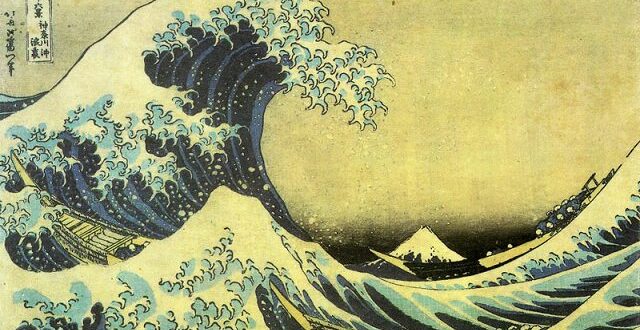“WATCH THIS CARD AS A VIDEO.
Does anything happen to me?
I take what comes . . . ” — Marcus Aurelius
“The fates guide him who will; him who won’t, they drag.” — Ancient Greeks
Wu Wei means “The Watercourse Way,” another way of saying “the path of least resistance” or “following the Tao.” While your inner refraction of the Tao may require you to overcome great resistance in the outer world, at other times, following the Tao involves taking the path of least resistance in adapting to outer circumstances.
The way Taoism is presented almost everywhere gives a false impression that following the Tao means passively adapting to the vicissitudes of the outer world. But the aspect of the Tao that is most important to follow is your inner refraction of it, which can appear as what Aleister Crowley called your “True Will.” This means following your intrinsic life mission recognized by your deepest enthusiasms and intuitions. Following this inner refraction of the Tao may mean overcoming fierce resistance in the outside world.
You can tell when the ego is trying to lead (rather than the True Will) when there are annoying thought tape loops in the foreground of consciousness — But what if I do this?, but what if this happens?, but what if that happens? The ego-led mind keeps darting back and forth like an overheated ping-pong match. When the ego and mind work together without the leadership of global intuition, you’ll feel a sense of restless strain and anxious effort. Another way to tell when the ego is leading is when yo’re caught up in any of the following gerunds:
Fearing, hoping, dreading, desiring, wanting, wishing, doubting, pre-structuring, envying, supervising, lifeguarding, complaining, comparing, self-pitying, pleasure-seeking, self-aggrandizing and glorifying, indulging, anticipating, expecting, contriving, hedging, clinging, identifying, rationalizing, pushing, straining, and imagining negative possibilities.
This list should give an idea of how often the ego is seeking to dominate our process. Each gerund is a function of doubt. The supervisory ego does not accept that the universe is unfolding as it should and is straining like a white-knuckled driver to wrest control. When you follow the Tao, you can sense inner congruence and modest confidence aligning you with your path. You will still have difficulties, but you know from the depths of your being that you are on the path.
The ego pushes for progress, and wants to clear up ambiguous and ambivalent situations by making some permanent, decisive choice.
The way of Tao is to accept that you are in a state of ambiguity and ambivalence and, when possible, to wait in non-action until things become clear before going forward.
When you are attuned to the Tao, oracles tend to be descriptive of what you already know and are doing. When you are out of tune, they tend to be more proscriptive and to compensate for what is distorted in your awareness and actions.
Consider this an auspicious time to attune to the Tao.
For my modified version of Taoism see: Dynamic Paradoxicalism — the anti-ism ism
Taoist principles see: The Taoist Path
Following the muse is the creative version of True Will. See: The Path of the Numinous — Living and Working with the Creative Muse
If you are caught in the mind-ego alliance or one of the gerund traps listed above, essential reading is A Guide to the Perplexed Interdimensional Traveler especially the sections:
Mind and Ego in the Hierarchy of Psychic Functions
True Will and Taoism
The Ruler and the Minister of the Psyche
 ZapOracle.com home to the free 720-card Zap Oracle
ZapOracle.com home to the free 720-card Zap Oracle






